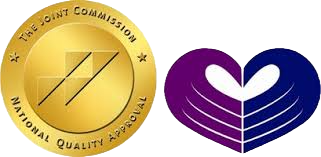Comprehensive Intensive Outpatient Program in Sacramento
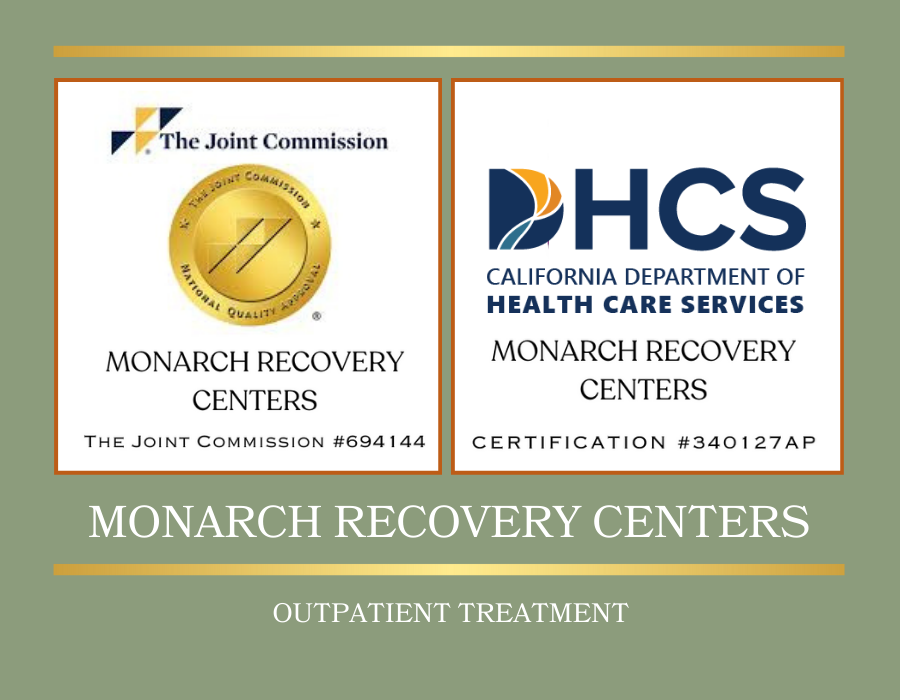
Because Healing Isn’t Linear, It’s a Metamorphosis.
At Monarch Recovery Centers, we don’t just treat addiction – we nurture your transformation. Our passionate team doesn’t simply walk beside you; we’re your advocate, your confidants, and your unwavering support system as you develop your wings and learn to fly. We know recovery isn’t a one-size-fits-all process, which is why our Intensive Outpatient Program (IOP) breaks the mold of cookie-cutter treatments.
Picture this: instead of dry lectures and generic worksheets, where you are being told how to recover, instead you’re immersed in eye-opening experiences that challenge your perceptions and ignite your inner strength. Suddenly you are finding what recovery means to you, through you, and through the experiential power of Acceptance and Commitment Therapy (ACT), we help you embrace your authentic self and craft a life brimming with purpose.
BECUASE CHANGE STARTS FROM WITHIN
Here, recovery isn’t happening to you, its happening through you, because of you, and most of all, for you
At Monarch, expect direct.
We don’t sugarcoat the truth – we serve up real talk that cuts through the noise and gets to the heart of what’s holding you back. Together, we’ll peel back the layers of past behaviors and thought patterns that have kept you trapped, giving your present moment the spotlight it deserves.
This isn’t just about getting clean – it’s about rediscovering the vibrant, resilient you that’s been waiting to emerge. Are you ready to spread your wings and embark on a transformative journey?
At Monarch Recovery Centers, we believe in the power of transformation. Accredited by The Joint Commission and certified by the California Department of Health Care Services, our Intensive Outpatient Program (IOP) is more than just a treatment option—it’s a lifeline. Here, we create a nurturing and structured environment that empowers you to rediscover your strength and resilience.
At Monarch, your recovery is our mission. We’re here to walk alongside you every step of the way, celebrating your victories and providing unwavering support as you build a sustainable path to long-term sobriety. Join us in reclaiming your future—your brighter tomorrow starts today!
By combining therapy with skill-building and education, Monarch’s program aims to:
This multifaceted approach empowers clients with the knowledge, skills, and resources necessary to maintain their recovery journey long after completing the initial treatment program.
Monarch Recovery Centers’ outpatient treatment facility in Sacramento offers an Intensive Outpatient Program (IOP) thoughtfully designed for individuals seeking a personalized, non-corporate approach to effective addiction treatment.
Monarch’s IOP offers sessions spread across three days, typically lasting three hours each, between Tuesday and Friday. This flexible schedule allows participants to balance their treatment with work, school, and family responsibilities, ensuring that recovery fits seamlessly into their busy lives
The program is designed to integrate into participants’ daily routines, fostering a smoother transition to a sober lifestyle. By applying recovery skills in real-world situations, individuals can practice and reinforce healthy habits while managing daily commitments.
Recognizing the importance of relationships, Monarch’s IOP encourages participants to maintain vital connections with family, friends, and loved ones. These connections provide a foundation of encouragement and accountability, making loved ones an active part of the recovery journey.
Monarch’s program offers a variety of therapeutic services, including evidence-based therapy sessions, holistic wellness practices, and peer support groups. This multifaceted approach ensures that every aspect of recovery is addressed, from mental and emotional health to physical well-being.
Each participant receives an individualized treatment plan tailored to their specific needs, goals, and circumstances. This personalized approach ensures that the program aligns with their unique challenges and supports their journey to lasting sobriety.
The program emphasizes teaching coping strategies, problem-solving skills, and techniques to manage addiction triggers in everyday life. These practical tools empower participants to navigate daily challenges and maintain long-term recovery.
Monarch’s IOP fosters a welcoming and understanding community where participants can share experiences and strategies. This sense of camaraderie helps individuals feel supported while balancing their recovery with personal and professional responsibilities.
By combining flexibility, personalized care, practical skills, and a supportive community, Monarch’s IOP creates a sustainable foundation for recovery. Participants are empowered to prioritize their sobriety without sacrificing other important aspects of their lives, paving the way for long-term success.
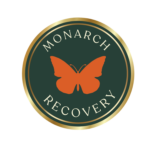
At Monarch Recovery Centers, we offer specialized Substance Use and Alcohol Counseling Services on an individual basis. Our dedicated Counselors work closely with clients to understand their unique experiences, challenges, and goals.
Through personalized sessions, we provide guidance, support, and evidence-based therapeutic interventions to help individuals navigate the complexities of addiction. Our aim is to empower each person with the knowledge and tools necessary for a successful and lasting recovery, ensuring they reclaim control over their lives in a supportive and confidential setting.
Monarch Recovery Centers’ Intensive Outpatient Program (IOP) ioffers a comprehensive continuum of care. Utilizing Acceptance and Commitment Therapy (ACT), our IOP supports individuals transitioning from higher levels of care, or those needing structured support while maintaining daily life. We focus on building resilience and a meaningful life in recovery.
Upon completion of our IOP program, our team remains committed to supporting clients every step of the way, ensuring they have continued access to the resources they need to thrive in their ongoing recovery journey.
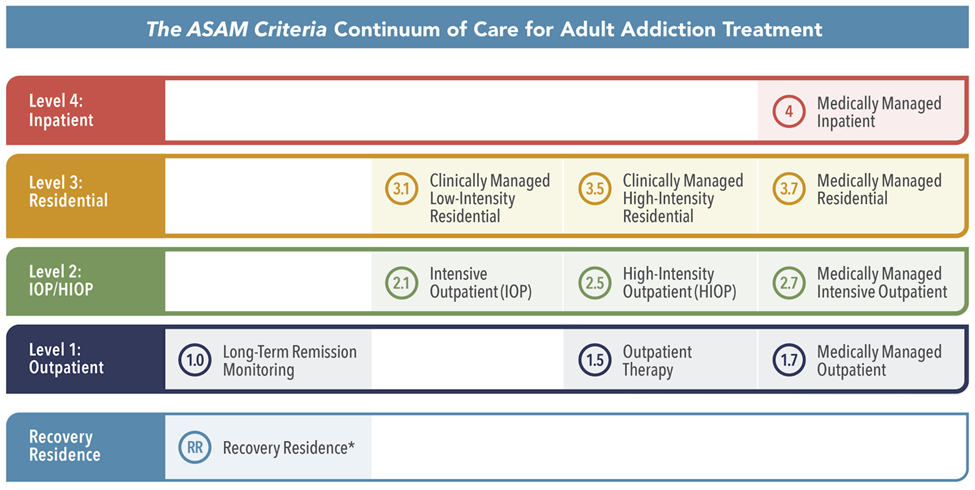
Participants in the RPG receive comprehensive education about addiction, including understanding its nature, recognizing triggers, and learning to identify warning signs of relapse. They also gain insight into the potential consequences of relapse.
The RPG assists group members in identifying personal triggers, such as people, places, situations, emotions, or thoughts, that may lead to cravings or temptations to relapse.
The group encourages individuals to develop problem-solving skills that will enable them to address any challenges or issues they may encounter during their recovery journey.
Monarch Recovery Centers create a nurturing and non-judgmental environment within the RPG, allowing members to openly share their experiences, challenges, and successes. Mutual support and accountability among group members are essential aspects of the program.
Each participant in the RPG works on developing an individualized relapse prevention plan, outlining specific strategies and actions to implement should they find themselves in high-risk situations.
Role-playing exercises and skill practice sessions are integrated into the program to reinforce the application of relapse prevention techniques in real-life scenarios.
Monarch Recovery Centers emphasize the importance of continued participation in the RPG, even beyond the initial stages of recovery. Maintaining sobriety is recognized as a lifelong journey, and the group offers ongoing support.
Informative classes cover a range of topics crucial for sustained sobriety.
These interactive sessions equip clients with practical tools to navigate challenges in recovery.
At Monarch Recovery, we are dedicated to providing an innovative and comprehensive approach to addiction recovery through our Intensive Outpatient Program (IOP) in which group therapy is an essential component.
Our IOP incorporates a range of evidence-based therapies to address the complex nature of addiction. Our group therapy is structured around Cognitive Behavioral Therapy (CBT), Dialectical Behavior Therapy (DBT), and Acceptance and Commitment Therapy (ACT), all within the evidence-based framework of 'My Life in Recovery' by The Change Companies, leading experts of the ASAM criteria.
Central to our treatment philosophy is the utilization of ACT Acceptance and Commitment Therapy. ACT uses mindfulness to help you become more psychologically flexible, which means being able to stay focused on your values and goals even when faced with difficult emotions or thoughts. This approach has proven particularly effective in addiction recovery. We’re not just helping you manage symptoms; we’re helping you transform your approach to life—letting go of destructive patterns and replacing them with actions that bring meaning and purpose.
Monarch Recovery Centers, is in-network
with most major insurance providers:
Cigna
Aetna
TRICARE
TriWest
Western Health Advantage
Sierra Health
Optum United Healthcare
Sutter Health
Oxford Health
UMR
Magellan
Blue Shield of California
MediCal Healthnet (Sober Living)
Soon to come:
MediCal Kaiser
MediCal Molena
MediCal Anthem
We also work with Kaiser and MediCal through single case agreements.
We understand that financial concerns can be a barrier to recovery, so we offer affordable payment options for those without insurance. Our goal is to make our Intensive Outpatient Program (IOP) accessible to anyone in need, ensuring that you receive the best care possible, no matter your circumstances.
At Monarch Recovery Centers, our Intensive Outpatient Program (IOP) is covered by most major insurance providers. We work with Medi-Cal and other plans (e.g., Anthem, Aetna, Blue Shield, etc) to make treatment more accessible. Verify your insurance here.
For more information, call us at (707) 205-5254
or email info@monarchrecoverycenters.com.
For clients requiring MAT, Monarch follows strict guidelines to ensure the highest quality of care. The primary goal of MAT is to help individuals achieve and sustain recovery by reducing the physical cravings and withdrawal symptoms associated with substance use. This makes it easier for individuals to engage in counseling and other therapeutic interventions.
MAT is a comprehensive and individualized approach to addiction treatment that harnesses the benefits of medications alongside therapeutic interventions to support individuals in their journey to recovery.
Monarch Recovery Centers supports MAT and is compliant with DHCS SB184, Health and Safety Code (HSC) 11832.9 and 11834.28 adhering to best policy practices. se
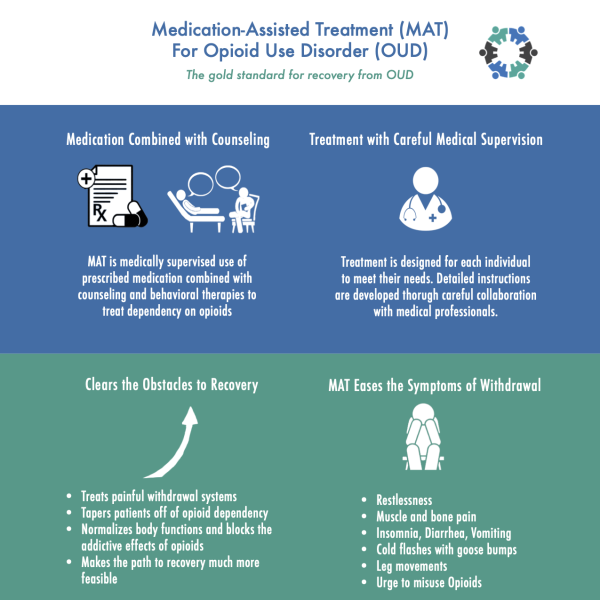
SCHOLARSHIP
To further support our clients’ recovery, we offer scholarship funding, when applicable, to individuals residing in one of Monarch’s five Sacramento sober living homes during their treatment. This additional support and accountability based on structured lifestyle from within the home helps strengthen their recovery, builds a sober community and enhances the likelihood of long-term success.
Additionally, clients who are also residents of a sober home are offered complimentary transportation to and from the outpatient office, ensuring a seamless and stress-free experience throughout their treatment.


Certified by the State Department of Health Care Services
DHCS Certification # 340127AP
Expiration: 11/30/2026


IOP groups are held Tuesday through Friday, with day and evening session options:
Monarch’s Intensive Outpatient Program (IOP) provides between nine and 12 hours of treatment per week. This is delivered over three to four days with three-hour sessions each day.
The program spans a minimum of 90 days, with the flexibility to extend based on the unique needs of each individual, ensuring a tailored approach to recovery.
Looking for a treatment facility near you that offers flexible rehab options?
Monarch Recovery Centers provides trusted outpatient services in Sacramento, designed to meet you where you are in your recovery journey.
Intensive Outpatient Program (IOP) offers a strategic approach to mental health and substance use recovery. Think of it as a high-impact, focused treatment plan that fits into your existing schedule. Unlike inpatient programs, an IOP provides the necessary therapeutic support—individual and group therapy, along with relapse prevention education—without requiring you to put your career or other responsibilities on hold. It’s designed for those who need more than weekly therapy sessions, providing a structured yet flexible framework to address challenges while maintaining your professional momentum.
Individuals who have recently been discharged from an inpatient, residential or partial hospitalization facility.
Typical IOPs use CBT for substance abuse recovery, focusing on coping skills and relapse prevention. Monarch IOP utililizes these modalities as well but what sets it apart is its unique use of ACT, emphasizing experiential learning for deeper emotional awareness and acceptance. This active approach fosters resilience and helps individuals build a meaningful life beyond just staying sober.
Monarch IOP takes a modern approach to treatment by emphasizing Acceptance and Commitment Therapy (ACT) as its core educational modality. Rather than just teaching coping skills, Monarch’s program encourages participants to engage in experiential learning, which involves active participation and hands-on activities that promote deeper emotional awareness and acceptance. This method allows individuals to confront and accept difficult emotions and thoughts instead of avoiding them, helping them build long-term resilience.
The experiential approach of ACT at Monarch proves more beneficial because it encourages participants to actively engage with their recovery process rather than passively learning techniques. The goal is not just to stay sober but to cultivate a life of meaning and purpose, even in the face of challenges.
Medically Assisted Treatment (MAT) combines medication with therapy for substance use disorders, particularly opioid use disorder (OUD). Buprenorphine reduces cravings and prevents withdrawal, while naltrexone blocks opioid effects. These medications alleviate withdrawal symptoms, enabling patients to engage fully in recovery-focused counseling and peer support, thus enhancing treatment efficacy.
MAT and Monarch Recovery Centers:
Monarch Recovery Centers MAT policy strictly adheres to the guidelines set forth by the Department of Health Care Services (DHCS) in BHIN-23-054. This policy aligns with HSC Sections 11832.9(c) and 11834.28(c), ensuring comprehensive care for our clients.
At Monarch Recovery, our Intensive Outpatient Program (IOP) integrates group therapy using various modalities; Cognitive Behavioral Therapy (CBT), Dialectical Behavior Therapy (DBT) and Acceptance and Commitment Therapy (ACT) for effective treatment and lasting recovery. Within the context of group therapy each modality brings unique benefits.
A. Group therapy offers significant benefits that often match or surpass the effectiveness of individual therapy. The collaborative and supportive environment of group therapy helps diminish the stigma, shame, and isolation frequently associated with addiction, fostering a sense of solidarity and mutual understanding among participants. Through socialization, sharing experiences and strategies, individuals reinforce their journey to recovery, benefiting from the collective wisdom and support of peers facing similar challenges.
CBT helps individuals recognize and change negative thought patterns and behaviors. In group therapy, participants learn to break the cycle of substance abuse by replacing harmful behaviors with positive ones, improving overall well-being.
DBT helps individuals manage emotions and reduce harmful behaviors. Group sessions provide a space to learn and practice emotional regulation and interpersonal skills, fostering a supportive environment for recovery.
At Monarch Recovery Centers, we emphasize the importance of Acceptance and Commitment Therapy – In ACT, mindfulness is used to help individuals increase psychological flexibility – the ability to stay in contact with the present moment and act according to one’s values even in the presence of difficult thoughts and feelings. It is a key component of the therapeutic process, helping individuals to better manage stress, anxiety, depression, and other psychological challenges, challenges found throughout the recovery process.
Monarch IOP operates as a substance abuse program and is categorized as a Level II on the spectrum of care for treatment, according to the American Society of Addiction Medicine (ASAM). The ASAM has defined five primary levels within the continuum of care for substance abuse treatment, each serving different needs:
Reproduced with permission from ‘ASAM’, American Society of Addiction Medicine, “The ASAM Criteria.” 2024
Level 2: IOP, Monarch Recovery Centers
Recovery Residence: /Sober Living Environments, Monarch Sober Homes
Monarch Recovery Centers: Outpatient
2020 Hurley Way #145B
Sacramento, CA 95825

MONARCH RECOVERY:
Uniting the exceptional support and comfort of Monarch Sober Homes with the effective clinical treatment services of Monarch Recovery Centers, we offer a comprehensive and modern approach to recovery. It’s time for real-talk recovery.
We invite you to join us on this transformative journey.
